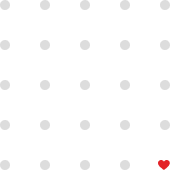
Unique regional context
The Mountain West's cool, dry climate presents unique challenges. Innovations in dryland farming in Montana are critical given the lack of irrigation, and farmers in Idaho’s Snake River Plain are working toward improved soil health and irrigation efficiency to manage limited water resources.
Progress
As of 2024, we are in the process of establishing our first regenerative agriculture projects in this newly prioritized supply shed.
How we’re supporting regenerative agriculture in this region
A key sourcing region for wheat and sugar beets, this area also includes General Mills’ oldest facility: the Great Falls Mill in Great Falls, MT. This mill is situated in the heart of the Golden Triangle – a critically productive agricultural region, particularly for wheat.
Our work in this supply shed focuses on enhancing soil health, reducing synthetic inputs, and water resiliency, both at the regional level and within our organic supply chains. As the region is predominantly agricultural, it is also critical to enable practices on both crop and rangeland that benefit waterfowl, grassland birds, and other wildlife species.
General Mills is a member of a multistakeholder coalition, convened by The Nature Conservancy, to create water-resilient agricultural value chains by fostering collaboration among stakeholders to address water scarcity in agriculture. A phased approach, starting with a pilot program in Idaho's Snake River Plain, will test and scale a landscape-level model that integrates diverse solutions, adaptive management, and blended financing to achieve long-term water sustainability.
We have also partnered with RegenScore to help to scale their adaptive scoring framework, which is accessible to any and all growers. It is tailored to specific regions/production systems and integrates practices, outcomes, and multiple forms of verification (including but beyond certifications) to produce a single, overall RegenScore (for a farm, a production system on farm, or an identity preserved supply chain). This outcome quantifies and communicates to a purchaser where a grower is on their "road to regenerative" and five ecosystem co-benefit scores (Soil Health, Air Quality, Water, Biodiversity, and Social Impacts). RegenScore is committed to making this free for growers to use and to ensuring grower data privacy/autonomy, while reducing the burden of data entry. They are convening a technical working group to develop an adaptation to small grains in the Great Plains, which includes wheat in Montana.
We sponsored the Montana Organic Association’s (MOA) 2024 annual conference in Great Falls, MT, in support of grower education, peer-to-peer knowledge-sharing, and community building.
Our work in this supply shed focuses on enhancing soil health, reducing synthetic inputs, and water resiliency, both at the regional level and within our organic supply chains. As the region is predominantly agricultural, it is also critical to enable practices on both crop and rangeland that benefit waterfowl, grassland birds, and other wildlife species.
General Mills is a member of a multistakeholder coalition, convened by The Nature Conservancy, to create water-resilient agricultural value chains by fostering collaboration among stakeholders to address water scarcity in agriculture. A phased approach, starting with a pilot program in Idaho's Snake River Plain, will test and scale a landscape-level model that integrates diverse solutions, adaptive management, and blended financing to achieve long-term water sustainability.
We have also partnered with RegenScore to help to scale their adaptive scoring framework, which is accessible to any and all growers. It is tailored to specific regions/production systems and integrates practices, outcomes, and multiple forms of verification (including but beyond certifications) to produce a single, overall RegenScore (for a farm, a production system on farm, or an identity preserved supply chain). This outcome quantifies and communicates to a purchaser where a grower is on their "road to regenerative" and five ecosystem co-benefit scores (Soil Health, Air Quality, Water, Biodiversity, and Social Impacts). RegenScore is committed to making this free for growers to use and to ensuring grower data privacy/autonomy, while reducing the burden of data entry. They are convening a technical working group to develop an adaptation to small grains in the Great Plains, which includes wheat in Montana.
We sponsored the Montana Organic Association’s (MOA) 2024 annual conference in Great Falls, MT, in support of grower education, peer-to-peer knowledge-sharing, and community building.
Ingredients grown
• Wheat
• Sugar beets
• Potatoes
• Barley
• Flax
• Peas
• Sugar beets
• Potatoes
• Barley
• Flax
• Peas
Relevant products
• Flour
• Cereal
• Dough
• Baking mixes
• Pet food
• Cereal
• Dough
• Baking mixes
• Pet food
Featured Partnerships
Explore other regions by clicking below
Northern Plains
In this area, we seek to address soil health and water quality issues.Southern Plains
Our efforts in this region support water management initiatives.Central Valley California
We help with the challenges of water scarcity in this key area.




